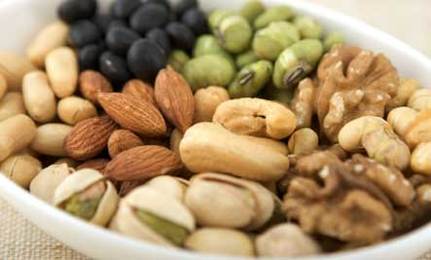Vegans are in no way jeopardized by protein deficiency. If we ate nothing but oatmeal, wheat, or potatoes, we would readily take in more than enough protein. Most dieticians think that plant-based diets include such a wide variety of amino acid profiles that vegans are almost guaranteed to get all their amino acids.
What exactly is Vegan Protein? Vegan sportsmen keep changing the stereotypes that are negative, demonstrating that plant-based protein can not only build strong muscles, but might keep a vegan healthy enough to run, swim, bike, dance or pump iron in professional sportsman amounts.
 Since they believed it could improve their functionality athletes used to eat thick steaks before competition. Protein nutritional supplements are sold at health food stores. This concern about protein is misplaced. We do not need huge amounts of it although protein is certainly an essential nutrient which plays many vital functions in the way our bodies operate. Just about one calorie we take in demands to come from protein. Protein supplements usually are not needed to achieve even the highest level of protein intake.
Since they believed it could improve their functionality athletes used to eat thick steaks before competition. Protein nutritional supplements are sold at health food stores. This concern about protein is misplaced. We do not need huge amounts of it although protein is certainly an essential nutrient which plays many vital functions in the way our bodies operate. Just about one calorie we take in demands to come from protein. Protein supplements usually are not needed to achieve even the highest level of protein intake.
It is very easy to get a vegan diet to satisfy the protein recommendations. Practically all vegetables, beans, grains, nuts, and seeds include protein, and frequently considerably, some. Alcohol, sugars, fats, and fruits don’t provide much protein, so a diet based only on these foods could have a good chance of being too low . Nevertheless, not many vegans we understand live on beer, hard candy, margarine, and only bananas. Vegans eating varied diets containing vegetables, legumes, grains, nuts, and seeds scarcely have some trouble getting enough protein as long as their diet contains enough energy (calories) to keep weight.
Some people say that eggs, cow’s milk, meat, and fish are high quality protein. This implies that they have large amounts of all essential amino acids. Other protein sources of non-animal source normally have all the essential amino acids, but the quantities of one or two of these amino acids could not be high. For instance, grains are lower in lysine (an essential amino acid) and legumes are lesser in methionine (another essential amino acid) than those protein sources designated as good quality protein.